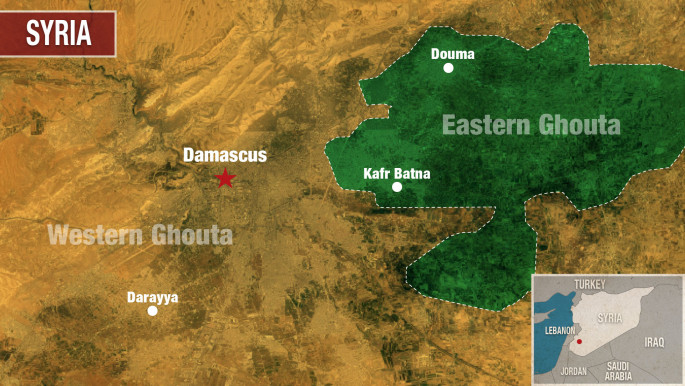First UN aid convoy this year enters Syria's Eastern Ghouta
The first aid convoy since November entered the Syrian rebel enclave of Eastern Ghouta on Wednesday, the UN said, after intensive bombardment by the army killed more than 250 civilians last week.
"First UN and Syrian Red Crescent inter-agency convoy this year crossed conflict lines to Nashabieh in Eastern Ghouta to deliver food, health and nutrition supplies for 7,200 people in the besieged enclave," the UN humanitarian affairs office said.
Some 400,000 people live in the enclave outside Damascus where they have been under siege by the army since 2013, facing severe food and medicine shortages.
Aid conveys require authorisation from the regime and security guarantees from armed groups before crossing into besieged areas.
In December, United Nations Secretary General Antonio Guterres called on the Assad regime to be referred to the International Criminal Court for blocking aid deliveries.
The UN Security Council is currently considering a draft resolution demanding a 30-day ceasefire in Syria to allow for urgent deliveries of humanitarian aid.
|
Sweden and Kuwait presented the draft, which would also demands an immediate end to sieges, including on Eastern Ghouta, after regime ally Russia last week rejected as "not realistic" a similar appeal by UN aid officials.
The Syrian conflict began when the Baath regime, in power since 1963 and led by President Bashar al-Assad, responded with military force to peaceful protests demanding democratic reforms during the Arab Spring wave of uprisings, triggering an armed rebellion fuelled by mass defections from the Syrian army.
According to independent monitors, hundreds of thousands of civilians have been killed in the war, mostly by the regime and its powerful allies, and millions have been displaced both inside and outside of Syria.
The brutal tactics pursued mainly by the regime, which have included the use of chemical weapons, sieges, mass executions and torture against civilians have led to war crimes investigations.


